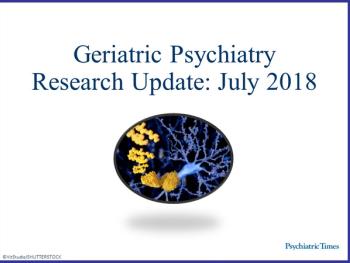
New research suggests that viruses and metals in the brain may exacerbate Alzheimer disease and deep brain stimulation shows promise in slowing cognitive decline.

New research suggests that viruses and metals in the brain may exacerbate Alzheimer disease and deep brain stimulation shows promise in slowing cognitive decline.

A small study finds that thyroid function may meditate treatment efficacy in patients with AD.

If you were the consultant, what issues might you raise in the cases discussed here?
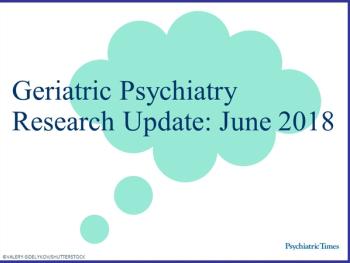
Three new studies examine research on biomarkers to predict lifetime risk of Alzheimer disease; diet and brain tissue volume; and cognitive impairment in active older adults.

Does moderate- to high-intensity aerobic and strength exercise training slow cognitive decline over the long term? New research might surprise you.

To understand the experiences and needs of the aging LGBTQ population, it is important to consider the culture, politics, and social norms that existed when these elders came of age. Clinicians can play a vital role by creating a safe and open environment that allows people to be themselves.

Improving sleep hygiene is very effective and low-risk in older adults. Which habits work best and which should be avoided? Take the quiz and learn more.

A simple diagnostic test for Lewy body dementia?
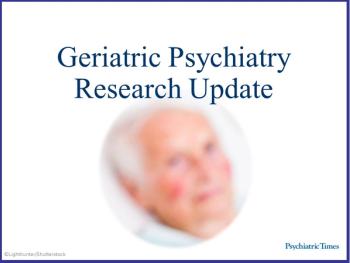
Hot off the press: Three new studies, including one that reports middle-age physically fit women are nearly 90% less likely to develop dementia decades later.
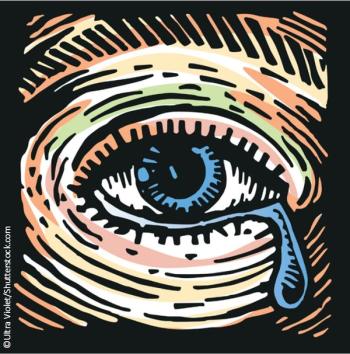
A 79-year-old widow with a history of severe physical abuse during childhood and throughout her married life attributes her outbursts to old age. Take the quiz and learn more.

Some of the most challenging decisional capacity consultations are requests to determine if a patient has the capacity to participate in discharge planning.

A new study makes the case for universal screening in patients who appear to be most vulnerable to underdiagnosis.

PTSD in late life can result from trauma that occurred much earlier or can follow traumatic events that occurred for the first time in old age.

In the elderly, falls are a common and important problem. In the US, fall-related injuries cost approximately $30 billion per year, and about 30% of older adults fall at least once in a given year.

A 67-year-old man complains of memory loss, difficulty with finances, mood swings, anxiety, and generalized weakness after a recent ICU hospitalization. After reading the case, take the quiz.
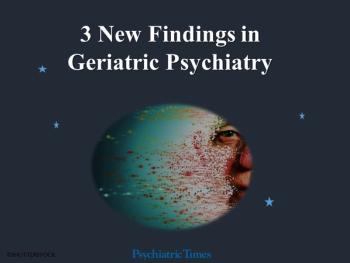
Lifestyle changes-more exercise, taking omega-3 supplements-may help those with dementia, and a protein found in the brain may be a marker for Parkinson disease. Details here.

The amyloid-β42/40 ratio should be included as a cerebrospinal fluid biomarker for Alzheimer disease, according to a new study.

Given the impact of sleep on quality of life, cognitive functioning, and health outcomes, understanding sleep disorders in older adults is vital to their overall care.

What are the symptoms and treatment strategies for this rapidly growing phenomenon in older adults?

Three new studies on genetic risk factors and lifestyle; the transition from cognitive health to Alzheimer disease; and metabolic syndrome in depressed older adults.

New-onset neuroticism and guardedness may be incipient signs of Alzheimer Disease, according to a new study.
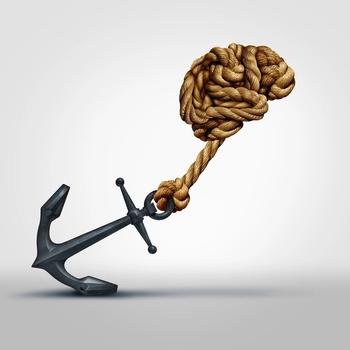
The cases presented here illustrate the complexities of memory loss and psychiatric comorbidities.

While opioid use disorders are more common in younger patients, prevalence among the elderly is growing.

This Special Report on Geriatric Psychiatry addresses a variety of clinical issues in the rapidly growing diverse population of older adults.

Some of the thorniest ethical dilemmas in psychiatry evolve around food: forced feeding in anorexia nervosa, artificial nutrition and hydration at the end of life, and the covert administration of psychotropic medications